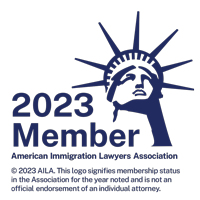Family & Fiancé Visas
The most common method of immigrating to the U.S. is through family-sponsored immigration. U.S. immigration law permits U.S. citizens and permanent residents to apply for immigrant visas for certain family members (spouse, children, parents & siblings of U.S. citizens). The treatment of such family members varies by relation and the status of the petitioner. Fiancé visas are temporary, non-immigrant visas that allow an individual to travel to the U.S. for the purpose of marrying a U.S. citizen and then applying for permanent residence to permanently reside in the United States.
Immediate relatives receive most preferential treatment: there are no numerical visa limitations, thus no visa backlogs to delay processing. Immediate relatives include the following: spouses, minor unmarried children, and parents of U.S. citizens.
The remaining categories are subject to numerical limitations, resulting in substantial backlogs and delays. First preference includes the unmarried children of U.S. citizens over the age of 21. Second preference includes the spouse, children (under 21), and unmarried sons and daughters (over 21) of permanent residents. Third preference includes the married children of U.S. citizens; fourth preference includes the adult siblings of U.S. citizens.
Because of the significant impact resulting from a child reaching the age of 21 under the visa preference system (an immediate relative being relegated to the first preference category), it is highly recommended that care be taken to file visa petitions prior to the child’s 21st birthday.
Spouses of U.S. citizens who have been married less than two years at the time their petition is adjudicated are subject to “conditional permanent residence,” meaning that their status will expire after two years unless the couple files to remove the conditions and become a permanent resident. This measure is meant to protect against marriage fraud; i.e., marriages entered into solely for the purpose of obtaining a green card. Persons found guilty of marriage fraud are permanently barred from immigration benefits. Persons who cannot jointly file with their spouse to remove the conditions might be able to obtain a waiver.

